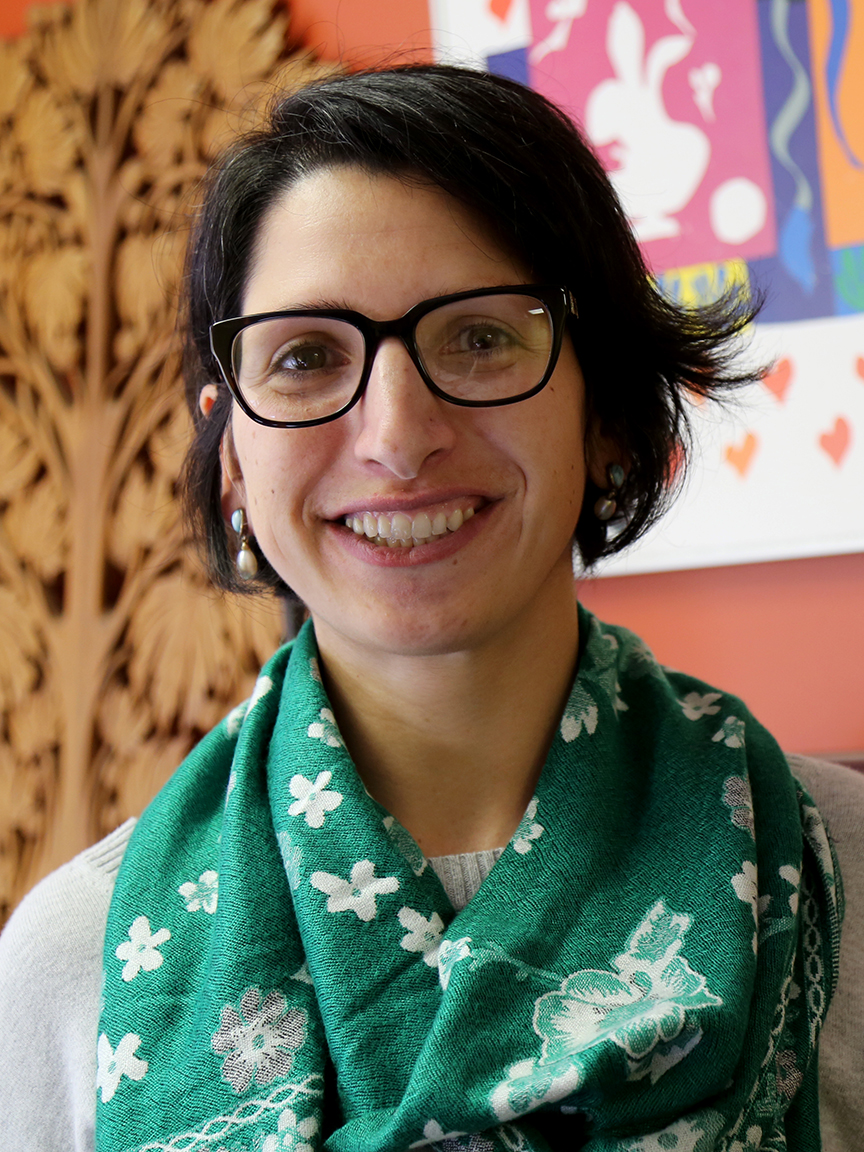By Karen Shih

“When I found out about the coexistence and conflict resolution program at Heller, I thought it was out of my own imagination,” says Megan Casey, MA COEX'18. “It seemed created for me.”
The Baghdad native knows firsthand the horrors of war. She had just started law school in Iraq in 2003 when her father was killed, forcing her to stop her studies and provide for her family. The best-paying option: become a translator for the U.S. Army.
“It was terrifying. I was seen as a traitor, cooperating with the ‘infidels,’” she says. “But as I worked with the soldiers, I realized they weren’t just there to kill people. They brought communities food and medical assistance.”
“Through that experience, I got to see how language and communication can make a difference.”
That’s why she’s dedicated her career to creating dialogues, especially in communities or countries where there are limits on conversation about taboo or difficult topics.
Casey came to the United States in 2009 on a Special Immigrant Visa for Iraqi and Afghan translators. She got a scholarship to Queens College in New York City, where she studied history, focusing on human rights and genocide. She worked with a program called Places of Pilgrimage, which helps women from the Middle East and North Africa discuss topics like rape, leaving religion and women’s independence through intensive writing and theater workshops. While at Queens, a colleague forwarded her an email about Heller’s COEX program—and she knew she had to go.
She shared her workshop experiences with her COEX cohort through her Capstone presentation, and she’s is now developing monologues and scenes that came out of the workshop that reflect her own experiences as a queer, Iraqi woman—which she hopes will one day be performed throughout the Arab world.
She’s grateful for all the support she received at Heller, both financially and emotionally.
“I’m thankful there was the Topol Fellowship” in Nonviolence Practice, she says, which fully funded her tuition. “Otherwise Heller would have remained a dream.”
“I never would have met my classmates, who had so much love. Everybody wanted everybody else to succeed. They’d say, ‘I want you to be whatever you want to be in the world. I’m going to cheer you on.’ That spirit—it’s what the world needs. It touched me in a deep way. I am changed forever because I have these people now in my life.”
